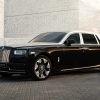 Taunts were heard as the players were in the center circle before the match. Photo: Getty Images/Chris Brunskill
Taunts were heard as the players were in the center circle before the match. Photo: Getty Images/Chris Brunskill
What was the Premier League waiting for at Anfield? Cheerful singing, reminiscent of Last Night at the Proms? will never play well in this stadium. Believing that they were ordered to behave like respectful subjects, the cops felt that it was not for them to dutifully bow at the feet of the new monarch.
When «God Save the King» was played, there were loud cheers, accompanied by the sustained singing of «Liverpool». A single banner featuring «The King» pays homage to Sir Kenny Dalglish.
On a divisive topic, one can at least agree that the Premier League's party planning committee is in urgent need of an overhaul. Encouraging a show of jingoism at a club whose fan base has, to put it mildly, a difficult relationship with the establishment, is akin to the Scottish Football Association «strongly suggesting» that they field red, white and blue bunting in Celtic Park.
The cultural and social history of all its member clubs may not be a priority for the Premier League when putting forward «strong proposals» under political influence, but even the most trivial research reveals how deaf the expectation is that the national anthem will be universally recognized. . — received at Anfield.
Liverpool fans since the early 1980s have expressed their distaste for someone other than their own team «victoriously» sending before the Wembley Cup final.
Arranging the right place for a party is notoriously dangerous to leave so late. The coronation date has been set for eight months. Premier League clubs have only been notified to commemorate the event on 28 April by providing an accompanying ceremonial «toolkit» in consultation with the State Department of Digital, Culture, Media and Sports.The Premier League insists there was no mandate to play the national anthem. Given the government's involvement, Liverpool did not interpret this as a casual invitation and chose to comply under pressure, seeing themselves as vulnerable to pariah status no matter how they reacted and defiantly not offering advice on how their fans should respond. This case turned out to be a demonstration of dissent that could have been avoided.
Assuming Liverpool reach the Wembley final again one day, advisers to FA president Prince William should arrange for a meeting with Liverpool and its fan council. Indeed, there is some bewilderment at Anfield that none of the English gaming authorities have ever been inclined towards this. Liverpool will play another Wembley final, advisers to the President of the Football Association, Prince William, should arrange a meeting with Liverpool and the supporters' council. Photo: Getty Images/Michael Regan
These seemingly anti-royal sentiments are not coordinated and do not represent Liverpool as a club, a city or even 100% of its fans. They do not reflect a personal animosity towards the late queen, the new king, or any of his children.
What began 40 years ago as a vehicle for aloof young fans to highlight their disillusionment with a politically divided nation , has evolved. into a more violent instrument of protest after the 1989 Hillsborough disaster, when state instruments were involved in covering up the unlawful killing of 97 Liverpool fans.
When the anthem is played, the booers believe they are expressing their disgust at the complicity of the establishment, either directly through the police or indirectly from those in power who have not intervened in the protracted agonizing pursuit of justice.
Other arguments why Liverpool fans boo the anthem has long been beaten. You may argue that these grievances are not directed at King Charles III, but there are humanistic reasons why Cope prefers the words of Rogers and Hammerstein to those of John Bull. a tribute to the victims of Hillsborough and their families. It was sung with even greater gusto on Saturday.
This anthem resonated most with the players who lined up in the shadow of the Sir Kenny Dalglish Stand, which was opened by Her Majesty the Queen as the Centenary Stand in 1993. Elizabeth II.
A large number of fans booed, supporters and opponents of Liverpool took their positions, and the football match continued. It's a pity that what happened earlier could have been so easily avoided.
























































Свежие комментарии